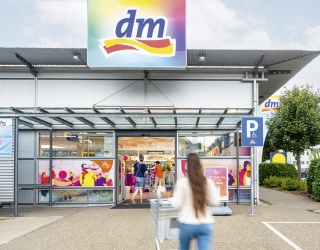Working hard is important, but so is taking proper rest breaks! Whether we spend this time alone or with colleagues, by getting some sunlight and fresh air or by relaxing in designated rooms – we all need to take a break sometimes to relax and recharge our batteries to be effective at work. This also applies to retail employees, who spend most of their workday interacting with customers and perform physically demanding tasks.
The benefits of taking regular breaks are undisputed. But what does the law say? What are the rights of retail employees when it comes to breaks and meal periods? And what duties and responsibilities do employers have regarding employee rest breaks?

What the law says about employee breaks and meal periods
In Germany, break periods are uniformly controlled and regulated in the Working Time Act (Arbeitszeitgesetz – ArbZG). The length of the break depends upon the number of hours worked. The law requires employees to be granted a 30-minute break if they work between six and nine hours. Employees who work over nine hours a day must have a minimum 45-minute break. Employees who work six hours or less are not entitled to a break period.
The employer has the right to stipulate a fixed break time by contract. Employers may also split the rest period into breaks of at least 15 minutes or set one uninterrupted break. An employee is not paid if he or she voluntarily foregoes his or her break.
Break times are not based on age or gender. The Working Time Act also doesn’t stipulate special meal and rest breaks for pregnant mothers or people with disabilities.
What about smoke breaks?
Like other employees, retail employees are free to spend their rest breaks as they see fit. It is up to them whether they spend this time doing exercises, taking a short nap, or having a smoke. However, the law does not entitle employees to take smoke breaks during their workday.
Having said that, many employers allow smoke breaks, though this time is not considered time worked. Employees have to make up this time after completing their regular hours. However, employees should never embark on smoke breaks without prior employer approval, as breaches may result in employees being disciplined or even terminated.
Where should you go during a break period?
The German Workplaces Ordinance (Arbeitsstättenverordnung - ArbStättV) stipulates that companies with more than 10 employees must provide a break room or designated rest area. A staff break room refers to an enclosed room that is expressly allocated for employee relaxation. Meanwhile, a break area refers to an area that is separated from the main workspace and is designated for meal and rest breaks.
Companies employing less than ten staff members must also set up break rooms if they are required "to ensure safety and health at the workplace". The German Federal Institute of Occupational Safety and Health specifies these provisions in the Technical Rules for Workplaces (Arbeitsstättenregeln – ASR). According to the ASR, companies with employees working in spaces that are “generally accessible by third parties” (i.e., customers, the public, external employees) must always have a designated and separate space for meal and rest breaks. This regulation always applies to retail settings given that customer interaction is par for the course for most retail employees.
Employee break rooms or facilities must be “readily accessible without creating hazard” to employees (ArbStättV). The maximum distance between workspace and break room is 100 meters.
Sitting, standing or lying down?
According to the ASR, the size of the break room must be at least six square meters. If more than six employees have to use the break room at the same time, each person must be allotted at least one square meter. All employees using the break room simultaneously must have access to seating with a backrest and a place at a table. Pregnant women must also have a place to lie down and rest.
The break room must have access to daylight and be adequately lit, climate controlled, and ventilated. External disruptions (odors, noises) and work-related disturbances must be avoided in the break room setting if possible. If there is no on-site cafeteria, employees must be given a way to refrigerate and heat up food.
Outside of scheduled rest periods, break rooms may also be used for other purposes, including meetings or in-house training.
Principal activities: Setting up and balancing the cash drawer and other activities
Principal activities are job duties that are an integral and indispensable element of the employee’s work activities. In the retail setting, this includes changing clothes to work at the meat counter or washing activities at the worksite, setting up the cash register, and similar preparatory activities. This also applies to concluding activities such as closing up a store.
As a general rule, principal activities are considered compensable hours worked and are not counted as authorized work breaks or rest periods.





